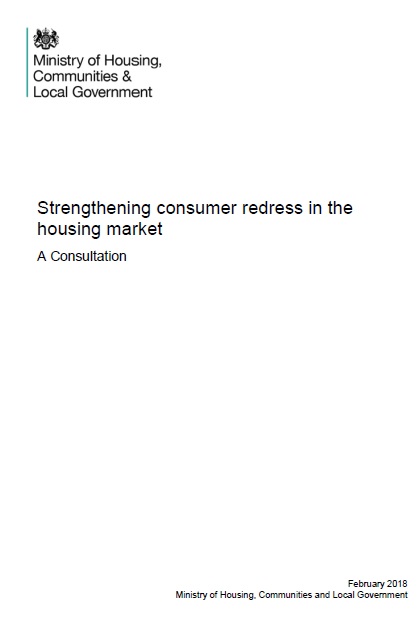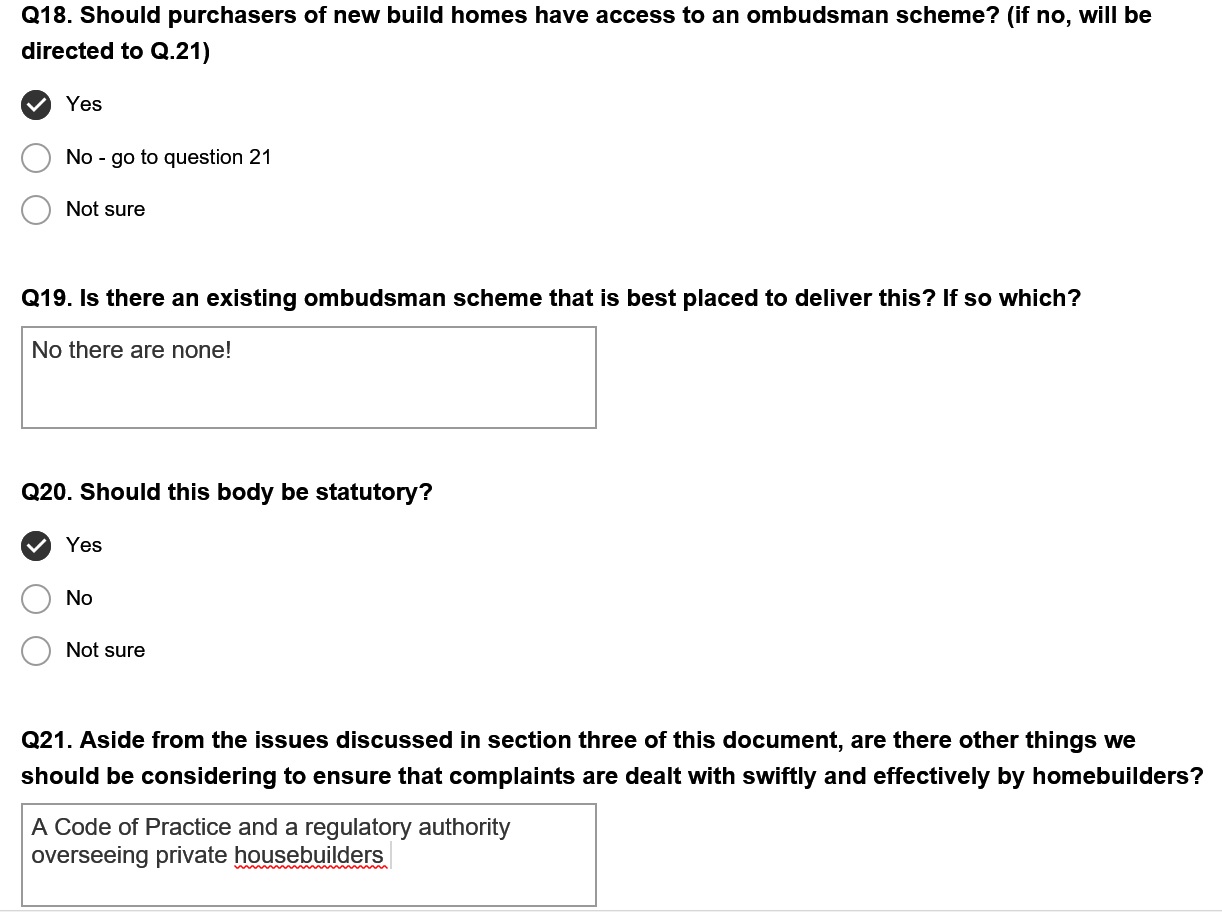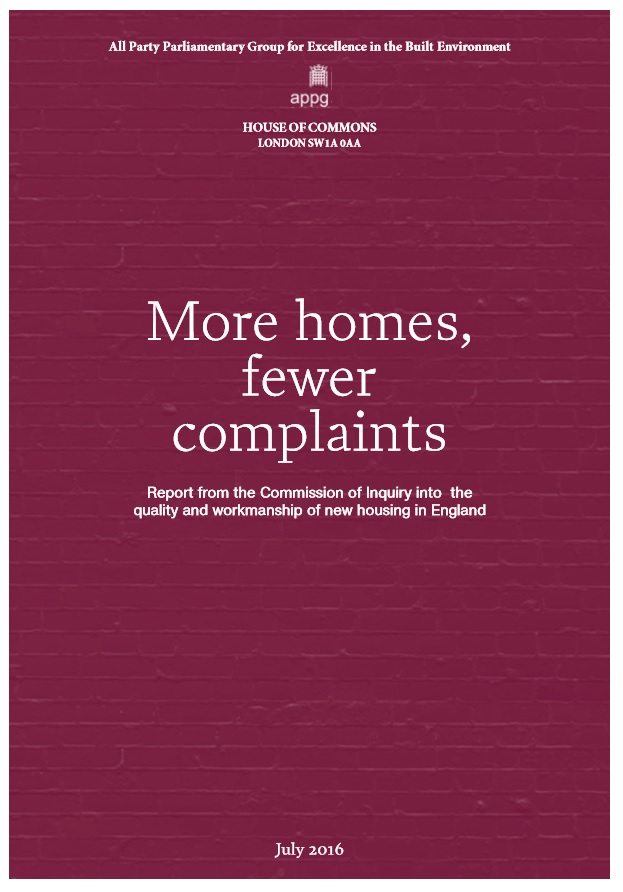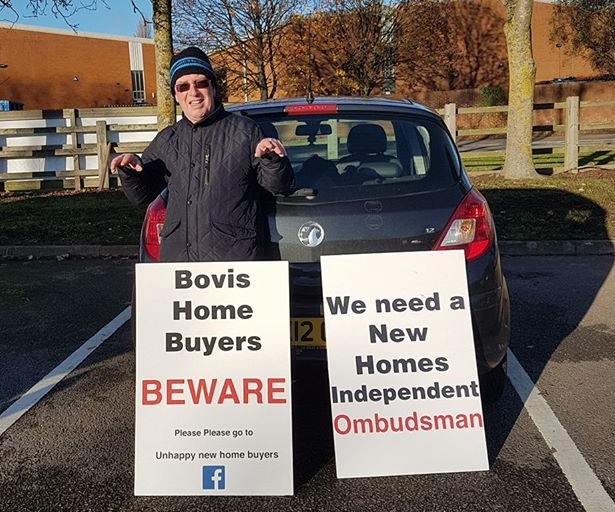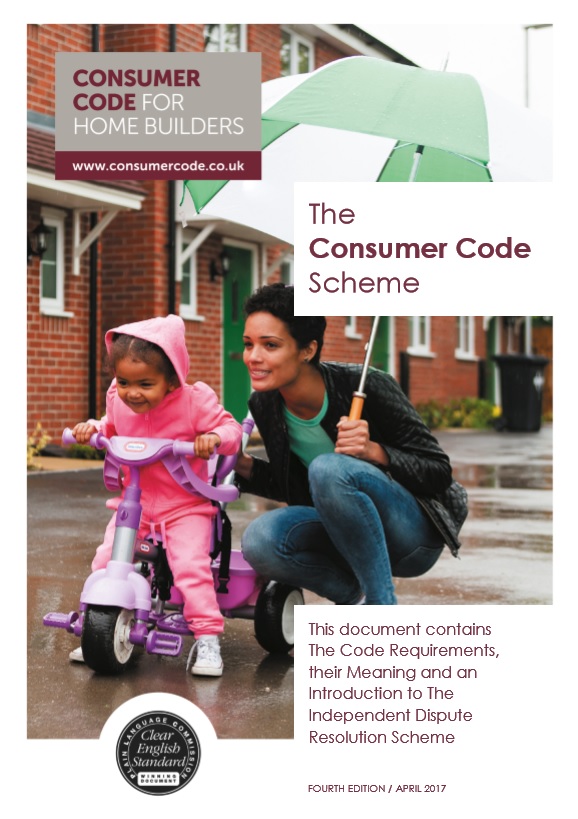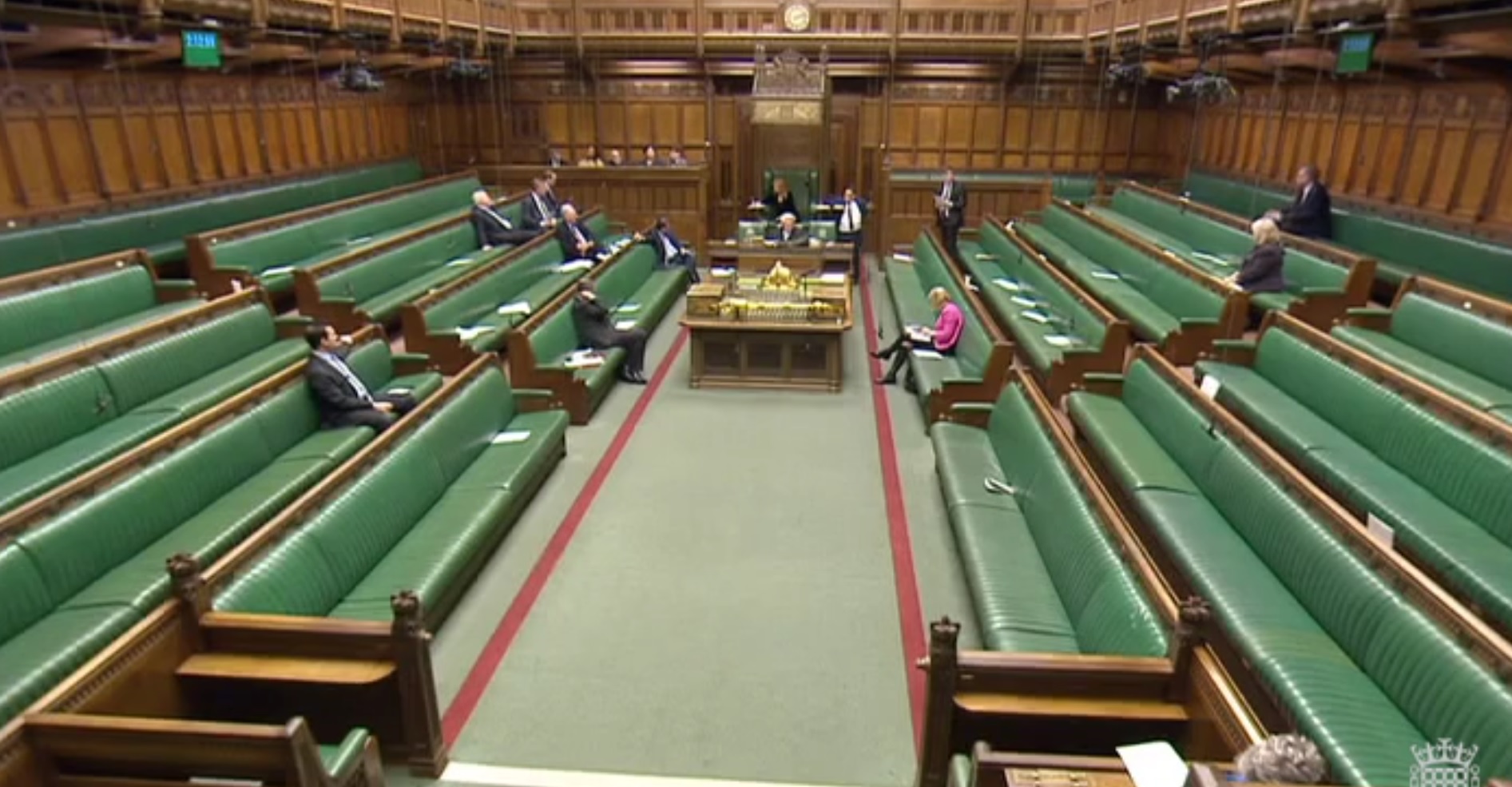As the Consumer Code for Homes Builders (CCHB) fights against its own imminent extinction, an ever growing recognition that a fully independent New Homes Ombudsman is gaining traction and support in government circles. The CCHB starts to “bend and amend” in an vain attempt to head off fully independent consumer redress, which would make the CCHB redundant and take control of buyers’ complaints away from those paid by the industry, to safeguard housebuilders’ vested interests.
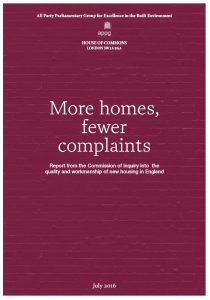 The APPG Inquiry in 2015 and the subsequent report published as long ago as July 2016, stated as its number 1 “key recommendation” that a New Homes Ombudsman be set up by government. Indeed it went further saying that the Consumer Code for Home Builders “was limited in its scope” and “did not give a satisfactory form of redress.” The CCHB does not, as it so often claims, “give new homebuyers extra protection”. It is merely the industry’s interpretation of requirements of existing laws such as the Consumer Protection from Unfair Trading Regulations 2008.
The APPG Inquiry in 2015 and the subsequent report published as long ago as July 2016, stated as its number 1 “key recommendation” that a New Homes Ombudsman be set up by government. Indeed it went further saying that the Consumer Code for Home Builders “was limited in its scope” and “did not give a satisfactory form of redress.” The CCHB does not, as it so often claims, “give new homebuyers extra protection”. It is merely the industry’s interpretation of requirements of existing laws such as the Consumer Protection from Unfair Trading Regulations 2008.
So what are Noel Hunter Chairman ‘Consumer Code for Home Builders’ Management Board suggestions to the Consumer redress consultation?
1.2 An Ombudsman will not deal with issues of build quality and customer service which have concerned consumers but would simply address the problems that arise. A more fundamental approach to improving the quality of all new homes is therefore essential, and that is what the Consumer Code for Home Builders (“the Code”) is working to achieve.
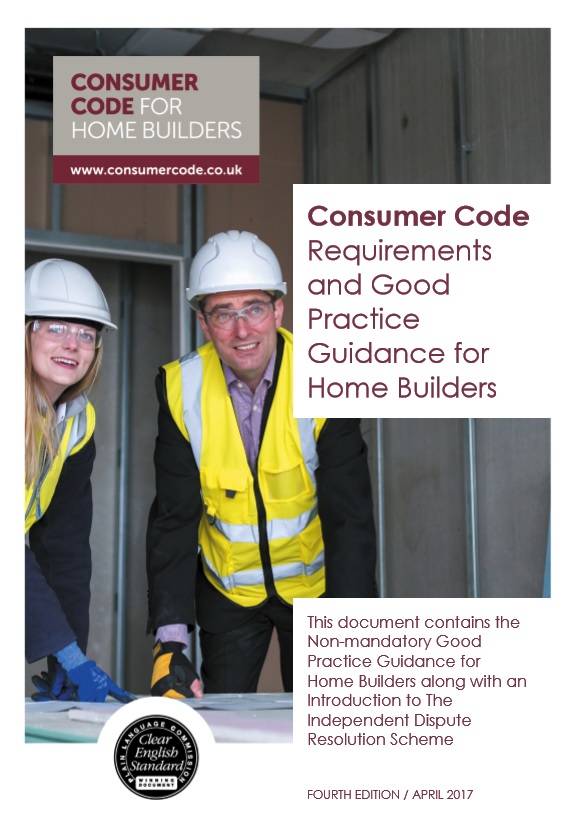 Not true. A fully independent, government-appointed new homes ombudsman (NHO) would force housebuilders to look at what they do. All complaints to the NHO would be public and through meaningful, justifiable compensation payments housebuilders would be forced to improve the quality of the homes they build. The Consumer Code for Home Builders has been in existence for 8 years and it is a quantifiable fact the overall quality of new homes has fallen over that period. “Working to achieve”? – maybe, but only now a new homes ombudsman is about to make the CCHB redundant.
Not true. A fully independent, government-appointed new homes ombudsman (NHO) would force housebuilders to look at what they do. All complaints to the NHO would be public and through meaningful, justifiable compensation payments housebuilders would be forced to improve the quality of the homes they build. The Consumer Code for Home Builders has been in existence for 8 years and it is a quantifiable fact the overall quality of new homes has fallen over that period. “Working to achieve”? – maybe, but only now a new homes ombudsman is about to make the CCHB redundant.
1.5 We are currently working with the Home Builders Federation, Homes for Scotland and others in the home warranty and home building sector to find an industry-led solution that could more easily be implemented to address concerns in the new home build sector.
“Find an industry-led solution”? The CCHB was industry-led and was found by a government inquiry to “not give a satisfactory form of redress” This profit-driven industry has had the last twenty years to improve quality and customer service when buyers report defects. It has failed all-ends-up to do so. It is not about doing what is “easily implemented” but doing what will be better and most effective for new home buying consumers.
2.5 Whilst we are supportive of the Communities Secretary Sajid Javid’s desire to improve consumer protection within the housing sector, we do not believe that a single Housing Ombudsman will provide the solution given the complexities involved in the construction and sale of new homes and the very different issues within the broader housing sector relating to second-hand homes, the rental market and social housing sectors, by way of example.
On this we can agree. The CIOB also agree that a separate, stand-alone New Home Ombudsman is required their spokesperson told me: “it shouldn’t be about condensing all the work of the various ombudsman but in fact offering something that really meets the needs of the consumer”
2.8 However, on those occasions where there are matters that need to be addressed, an Ombudsman will not be able to deal with any intrinsic systemic and operational issues within a specific home builder company that do concern those consumers, but will simply address the problems that arise. A Consumer Code can work with builders to ensure quality is further raised across the board.
“Can work with builders to ensure quality is further raised” The quality of new homes has got worse, it has never been raised at all. More and more new homebuyers are contacting me in distress, due to their indifferent housebuilders failing, to not only fix defects in their homes, but even to recognise their own responsibility to do so. There are also increasing instances of buyer’s dissatisfaction with the way NHBC deals with buyers’ warranty claims. How could the CCHB possibly ensure quality is raised, when it hasn’t even managed to get plc housebuilders to abide with the basic 19 requirements of the CCHB in 8 years!
3.2 Since its launch, the Code has led to a step-change in how builders deal with customers through the sales process and is now in its fourth edition. It has been reviewed three times with wide consultation across the industry; consumer groups and Government, most recently in 2016 whereby the review was overseen by a former Director General of Fair Trading. Each time, the Code has been updated and improved to provide greater protection for consumers.
Four revisions to the CCHB in 8 years! “Updated and improved” – for who? The latest CCHB evision making it more difficult for new homebuyers to get justice. The CCHB is not even a Chartered Institute of Trading Standards approved scheme!
Moving forward
4.1 All that said, to further improve consumer protection and address any identified gaps when dealing with new home problems, we are working closely with the HBF, Homes for Scotland and representatives from other warranty providers. To date, those discussions have included:
• Working towards a single common Code;
• Working towards an agreed set of warranty standards which conform to best practice;
• Improving the independence of the existing governance structure;
• Improvement of the existing Independent Dispute Resolution Scheme(s) by way of providing free access to consumers and extending it to cover any gaps identified between the home builder and the home warranty cover in relation to dealing with quality issues;
• Implementation of an Ombudsman redress scheme.
All of which is too little, too late. It is ONLY now being looked at because of the threat of a fully independent, government-appointed, new homes ombudsman. Otherwise why haven’t the CCHB and the industry acted before now? The Barker Review was way back in 2004 and the Office of Fair Trading Market Study of Home Building in the UK published in October 2008, both many years ago!
7.2 However, we believe it [CCHB] can be strengthened further by making it more independent of the Industry. This would not preclude the Industry being represented on the Board; on the contrary we believe that this would be desirable in the interest of reaching effective and practical solutions. However, the Board should be balanced, but with a majority of independents. Plans are already in place to make such changes.
The CCHB will never be independent of the industry. Its tentacles will be all over it, even with “independents” on the board. The NHBC has a council from many disciplines, but it has been controlled and influenced by housebuilder representation. Only a government-appointed new homes ombudsman, accountable and answerable to government, would be truly and demonstrably independent.
8.1 We are currently looking at ways we can improve the existing Independent Dispute Resolution Scheme by way of providing free access to consumers and extending it to cover any gaps identified between the home builder and the home warranty cover in relation to dealing with quality issues.
The CCHB should have included defects, poor quality and warranty issues but these were and still are, specifically excluded to protect housebuilders and warranty providers, not new homebuyers.
8.2 You have asked within your consultation whether purchasers of new build homes should have access to an Ombudsman scheme; we consider that the importance is not necessarily whether it is an Ombudsman scheme, but more that there should be access to an Independent Dispute Resolution Scheme that can determine on issues that arise.
Unsurprisingly, as a proper new homes ombudsman would make the CCHB redundant. IDRS has not served new home buyers within the “limited scope” of the existing CCHB. Far too often, even when buyers succeed, payments are a small fraction of what was justifiable.
8.3 Whilst we understand that the Property Ombudsman and Ombudsman Services (Property) have proved to be effective in addressing issues with estate agents in the second-hand homes market, our Code along with others in the sector already use CEDR Ltd: They are the leading independent commercial Alternative Dispute Resolution (ADR) provider in Europe and one of the largest and leading ADR organisations internationally, dealing with over 300,000 people in commercial disputes and resolving over 100,000 consumer disputes across 30 differing sectors.
CEDR Ltd are indeed a commercial ADR, As such they have commercial interests to protect. An independent new homes ombudsman would be non commercial: FREE – FAIR – FOR EVERYTHING
8.4 CEDR Ltd are accredited with the Chartered Trading Standards Institute under the ADR Directive and are an associate member of the Ombudsman Association and we are already in discussion with them as to how they may alter their services to meet Government’s expectations.
CEDR may well be accredited with the Chartered Trading Standards Institute (CTSI) but the CCHB is not approved by the CTSI.
8.6 We do not believe an Ombudsman scheme in isolation would, or could, offer the same levels of protection to consumers as home buyers currently have under the Code as it would not, by definition, embody a compliance regime as referenced above. A voluntary Ombudsman scheme inevitably would not engage all home builders as happens with the current warranty-led scheme where involvement in the Code is made mandatory by way of the warranty bodies’ Rules of Registration.
As previously mentioned, the CCHB does not offer any “protection” to buyers whatsoever! A New Homes Ombudsman scheme would not be voluntary at all. Every housebuilder would be legally required to be bound by its decisions and scrutiny, paying a levy based on the number of homes each build.
8.14 Many of the issues being raised recently in the media are deemed to be “snagging” issues. This is a broad term and further clarity on what this means would help – some may be quality issues, others maintenance issues that appear over time as the property “settles in” and dries out, and others might relate to work that needs to be completed. An agreed timeframe for resolution of defects may reduce the volume of complaints and it is then possible to consider that those that are not dealt with in that time could then be escalated either through the home warranty provider or failing that, the Independent Dispute Resolution Scheme.
This is typical of this industry, to attempt to minimise often serious defects in new homes as minor, snagging, or maintenance issues after “settling in”. In reality, thousands of new homebuyers have recently found a voice and engaged with the media to make very public the extent and often serious defects in their new homes, such as missing insulation, weak mortar, defective render and issues with timber floors.
Increasingly, buyers are required to move out of their dream homes whilst their homes are torn apart and (hopefully) defects are rectified. It is neither fair nor just that in these instances, many of which cause ill health due to the stress and anxiety caused by housebuilders’ persistent denial of obvious issues, that there is currently no independent mechanism for justifiable compensation to be paid. An independent new homes ombudsman would address this gap.
8.16 Given all of these issues, we would suggest that a time-limited and independent study is carried out to review the way in which quality issues are dealt with, and to identify the gaps which an independent dispute resolution service would be best to address. Such a study would ensure consumers are fully covered for all matters of complaint in the future.
The last thing beleaguered new homebuyers need is yet more delay. There is no need for a study, this industry knows full well the serious nature of defects, poor quality and how it acts towards its own customers. It chooses to do nothing. Further consultations, calls for information or green and white papers will only give more delay. What is needed is action, the setting up of a new homes ombudsman as soon as possible.
Sanctions
9.1 In respect of your consultation question around what kind of sanctions should a redress scheme have access to, we do not believe the purpose of a redress scheme is to act as a regulator but rather the purpose of the scheme should be to put the individual back in the position they would have been in had the service failure not occurred.
A redress scheme that does not actively punish or sanction miscreants or act to prevent reoccurrence of similar complaints will be ineffective and not give consumers the redress they deserve or seek. To “put the individual back in the position they would have been in had the service failure not occurred.” With new homes would mostly mean remedial works to bring the new home up to the required standard. It would not address the issue of compensation for inconvenience and stress caused both before and during the required works.
Publication of decisions
10.2 A large business may receive more complaints just by the nature of the volume of homes sold but that may not mean that it is worse than perhaps a small business that might receive one or two cases, which could, therefore, indicate a more severe problem. Consumers often only look at the volume of complaints and perception is often the more complaints the worse the company.
The more complaints the worse the company is a fairly logical conclusion. Barratt (17,395 homes) have fewer complaints than Taylor Wimpey (14,842 homes) and both have fewer complaints than Persimmon (16,042 homes) – based on HBF survey star rating and social media. With a housebuilder league table, new homebuyers would be able to avoid the worse of the plc housebuilders, or at least know what they were letting themselves in for!
10.3 Trends data and context is key here and while we would not oppose the publishing of such information, it nonetheless should be in a considered and balanced way given that consumers will often buy a new home due to the location and affordability as opposed to the identity of the developer building it.
“A considered and balanced way”? In other words, in a way that the industry approves of.
Next Steps
11.1 The consultation asks if there should be a statutory body and our concern is that this will require parliamentary time to establish, which could take several years through the legislative framework. 90% of the home building industry is already supported by, and complies with, our Code and we believe that by finding an industry-led solution, we can increase the cover.
Time is of the essence. The only delay being government lack of urgency. Any legislation could be sorted out in a week if there was a will to do so. Implying a new homes ombudsman would take several years as a justification to trust the existing and failing CCHB to “find an industry-led solution” is ridiculous. That time has long since passed as Tony Lloyd MP for Rochdale said:
“We must have not a nice, cosy, industry-led ombudsman, but an ombudsman process that has real teeth and the capacity to make a material difference” During a debate in the House of Commons the then APPG EBE chair Jo Churchill said: “I applaud the Department for Communities and Local Government for getting the Home Builders Federation to look into the voluntary ombudsman scheme, but perhaps the time for any such voluntary scheme has passed.”
11.2 By expanding its remit to cover the issues currently being faced by home buyers in relation to redress, and by working with others within the home warranty and home building sector, supporting HBF, we believe we can provide an industry-led solution that could more easily be implemented with support of both the industry and key stakeholders.
The CCHB had an opportunity to “expand the remit” during the fourth revision to the CCHB. Yet the latest incarnate of the Code made it even more difficult and placed new obstacles for new homebuyers seeking redress.
11.3 If agreed, we will continue to work with HBF, Homes for Scotland and other colleagues to address the issues raised within the consultation setting out a framework and agreed timetable for implementation.
In other words work with the wider industry to protect its interests and ensure that any new homes ombudsman redress scheme is managed and set up by the industry, no doubt as the CCHB was and will be “limited in its scope” and “not appear to us objectively to offer consumers a wholly satisfactory form of redress”
The British new homebuyer deserves better from government! The CIOB hold the view that only a fully independent New Homes Ombudsman, by its very existence, would drive housebuilders to reflect on the work they carry out and drive them to aspire to ‘do better’ in the knowledge that their customers can complain to an independent ombudsman.






